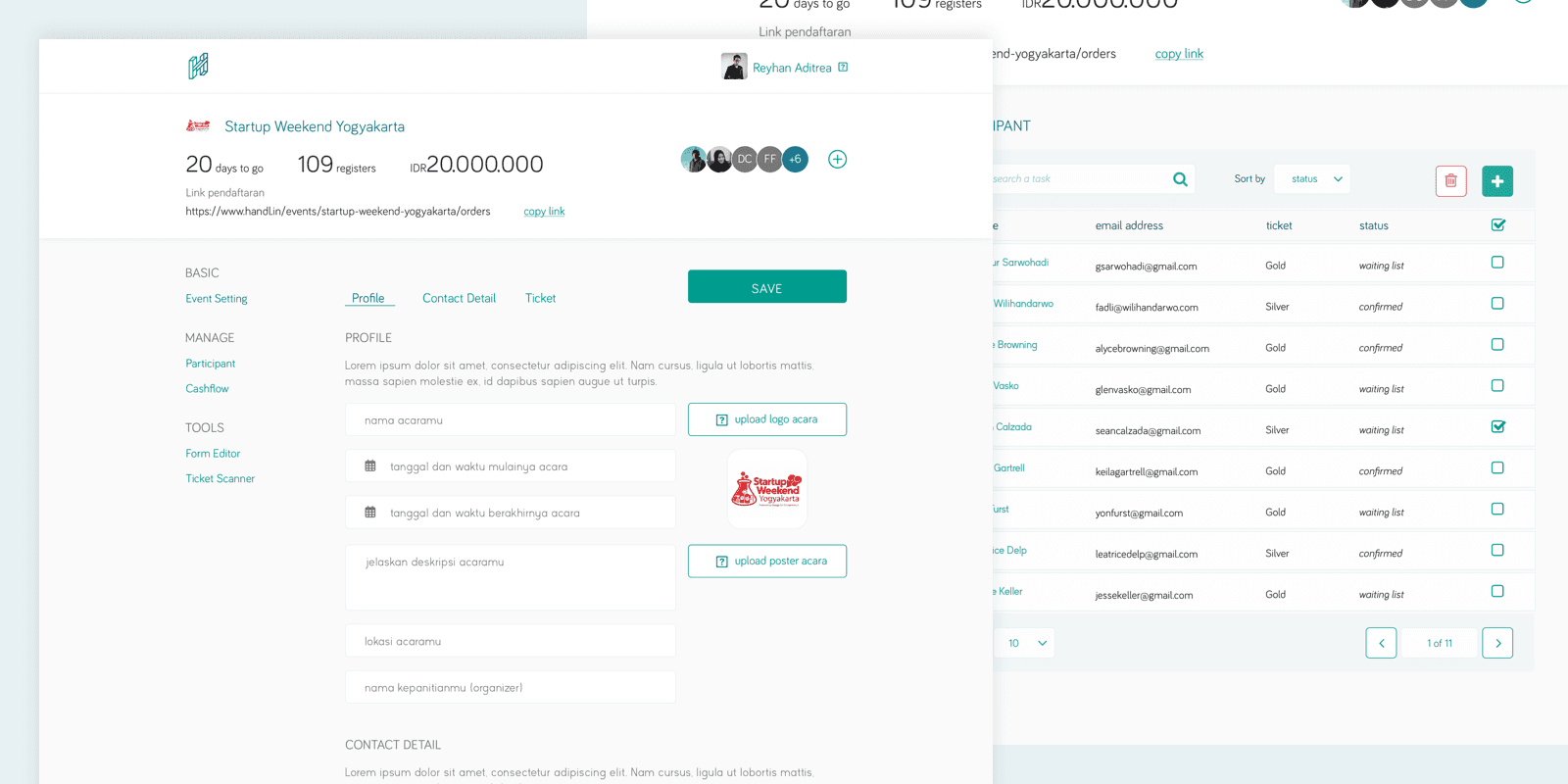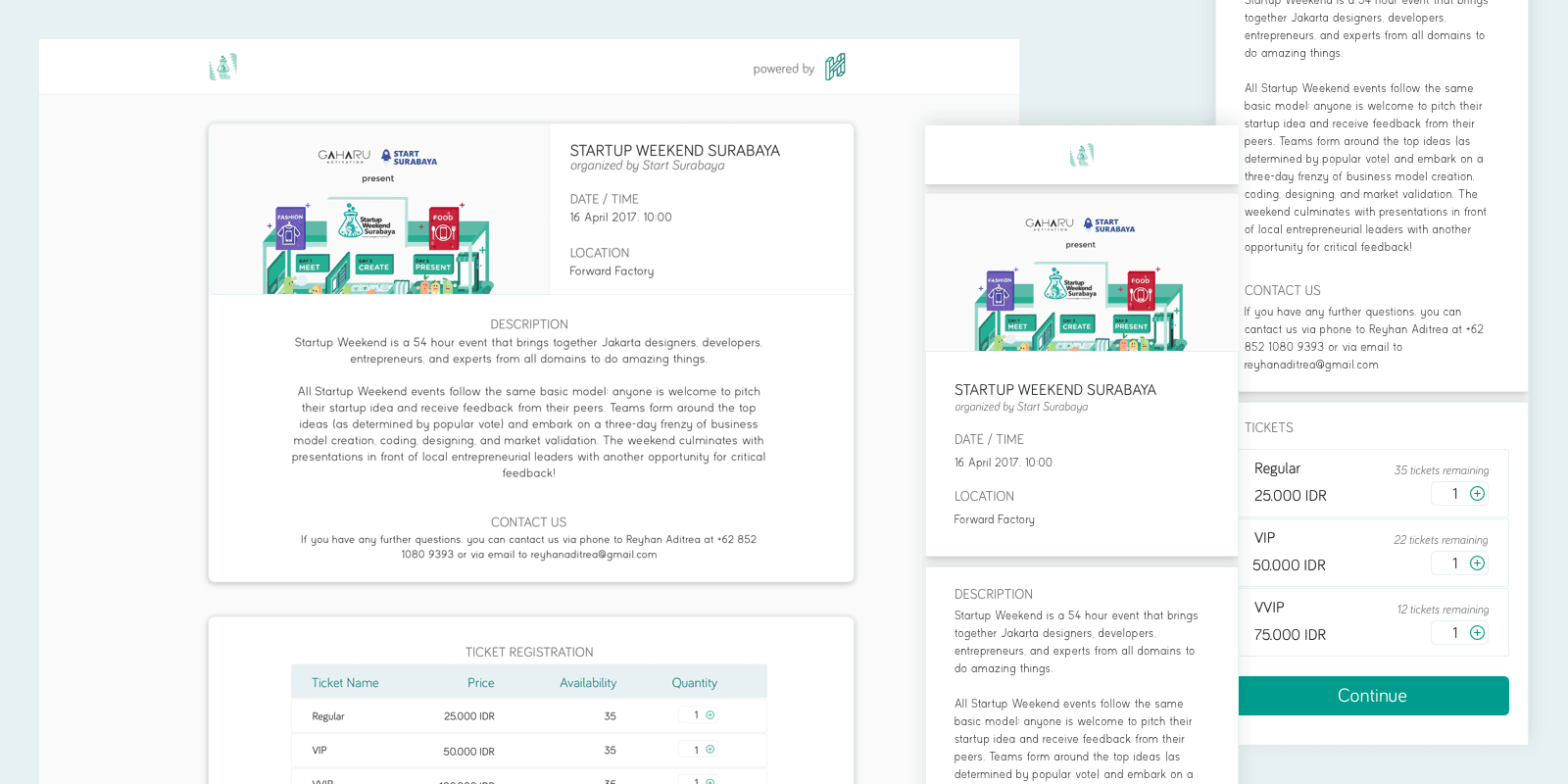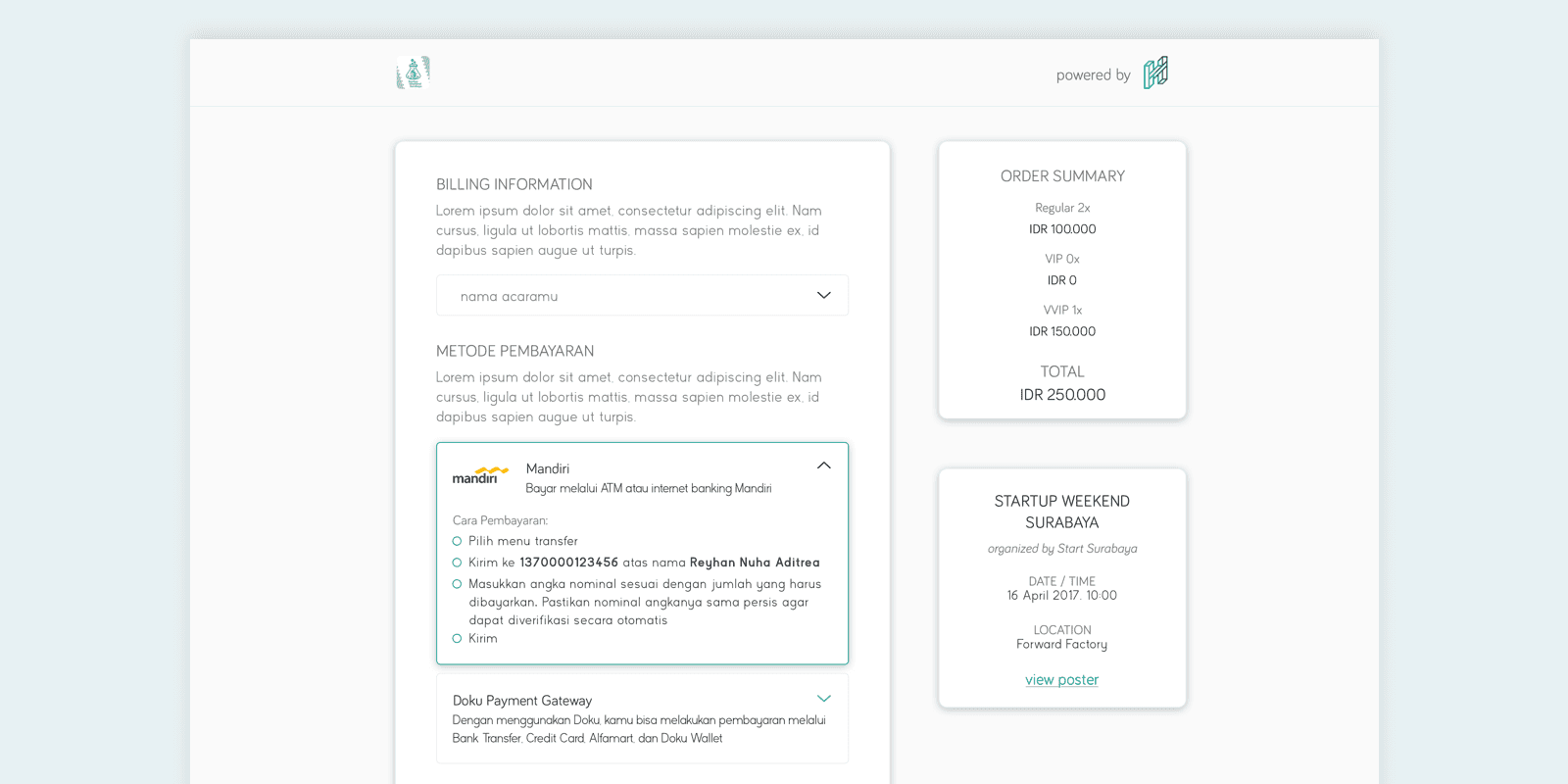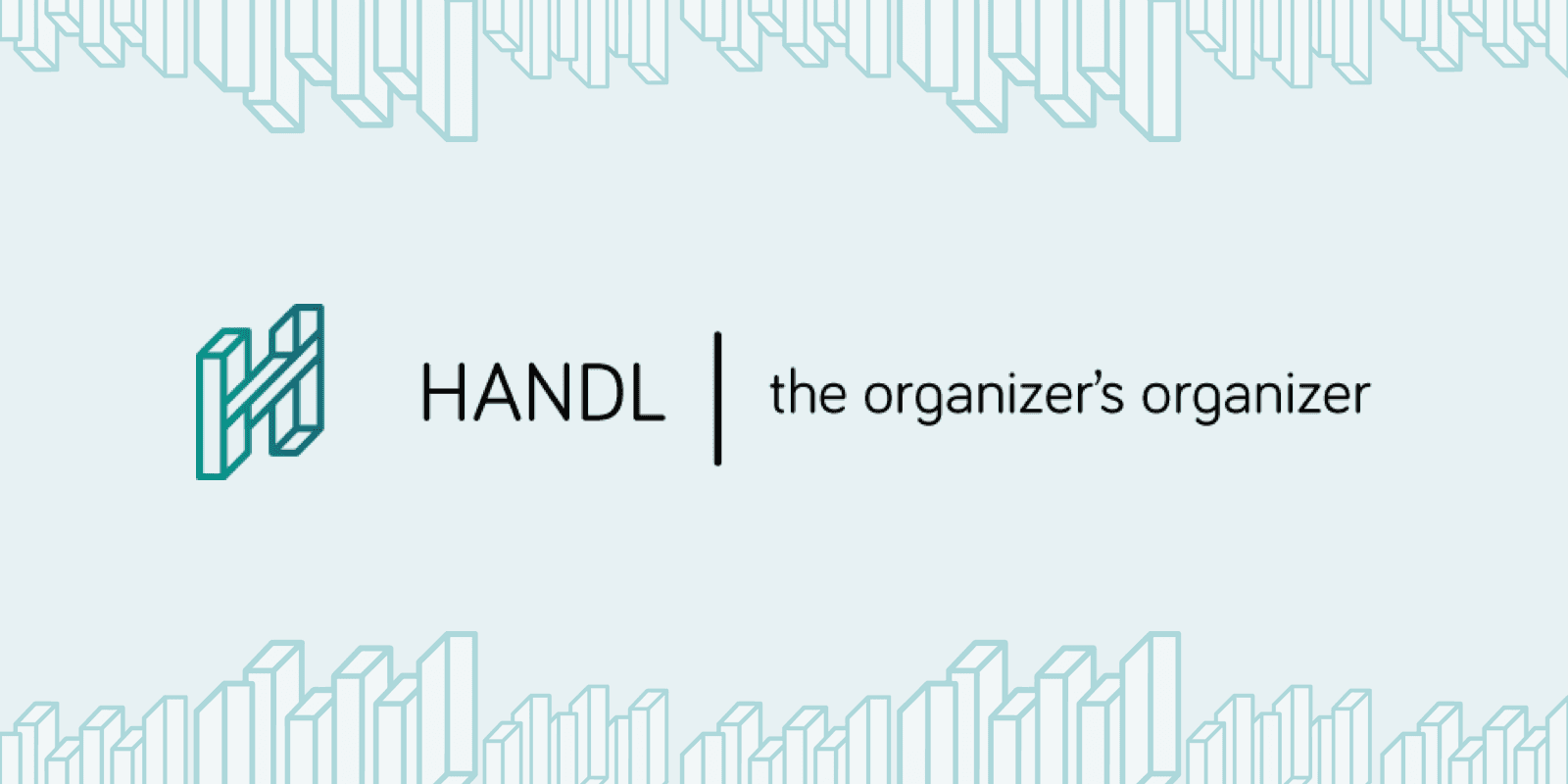Scratching your own itch…
I went to university in Yogyakarta, a city with thousands of events: workshops, concerts, art exhibitions, etc. As event organizers, there are lots of stuffs that need to be prepared. At the time, managing attendees are very tedious; registration and ticket sales are handled manually.
Having gone through with those tedious processes ourselves, me and friend, Fahmi Ardhianto, found and opportunity to automate that process with our product, HANDL.
Conducting user research to validate the problem
I did research to both side of the markets, the event organizers and event attendees:
I did user interview to college students and learnt about their behaviour on attending the event, from purchasing the ticket until the day of the event.
I did another in-depth interview to event organizers to breakdown their journey.
The results? just by having these interviews, surprisingly it bring us to even have an early adopter, they were interested with our vision and concept. So we decided to develop the features for MVP for them.
. . .
The first MVP
We scope out many and many of our initial concept design, because now we have real users and also release date. We had to be more mindful on what we need to develop. This is what we developed for first iteration:
Event Management Dashboard
This is the core feature of HANDL, to manage all informations that will be shown to the public and also to get the list and status of the attendees.

Event Registration Page Builder
From the data filled by the event organizers, the system will create registration page where our users can purchase the ticket directly from this page.
If the event organizers updated information on the dashboard, it will reflect automatically on this page.From our analytics, we get the information that most of our users comes from mobile web. So we make sure that the design is mobile-friendly.

Online Ticketing
At the time, online transaction wasn't really a thing, so online payment is an added-value that we wanted to highlight for our users, because we knew that it could solve lots of issues for ticket purchasing. We provided payment using bank transfer and we also integrated our system with DOKU for wider payment options.

. . .
Evaluating our first release
We learnt a lot during this phase:
We managed to secure a revenue of ~Rp400.000.000, though 95% of that revenue will be distributed back for the event organizers. But we thought it wasn't that bad of number considering it was our first release and also we grasped the business landscape little bit better.
We learnt to handle our users complain while managing the product development itself. There would be new inquiry on daily basis because our system was far from perfect. But I'd say that we manage it quite well because the users were pretty much satisfied after the event had finished.
